The Legend of Zelda -Twilight Princess HD- Original Soundtrack
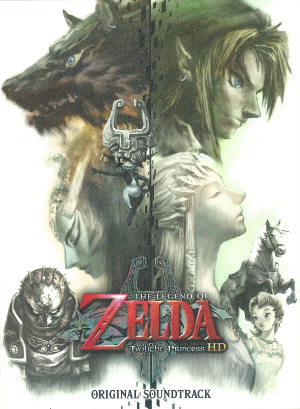 |
Album Title: The Legend of Zelda -Twilight Princess HD- Original Soundtrack |
| Record Label: Symphony No. 5 |
|
| Catalog No.: TSCM-0058/60 |
|
| Release Date: July 27, 2016 |
|
| Purchase: Buy at CDJapan |
Overview
Twilight Princess has always held a special place in my gamer heart. After the cel-shaded exuberance of The Wind Waker, Nintendo sought to create a more ‘realistic’ game and turned the medieval, folkloric themes up to eleven in Twilight Princess. To me, the game has always felt like an updated, ‘mature’ rendition of Ocarina and this is reflected in the score. Unlike the more upbeat Wind Waker, Twilight Princess features a more cinematic, atmospheric soundtrack that, unlike the endlessly catchy Ocarina soundtrack, is slow to reveal its many splendours.
It’s great to see Nintendo finally give this soundtrack its due after all these years by releasing an official soundtrack. Before this, we only had to rely on six-hour gamerips and the kickstarted, fan-orchestrated Twilight Symphony. The three-disc set features the majority of the music featured in Twilight Princess HD for the Wii U. While it’s not quite complete, with the glaring omission of “Orchestra Piece #2” among others, it comes pretty close. The music adheres closely to the original release, this was perfectly fine at least for this reviewer…
Body
The score’s cinematic nature really is its primary attraction. There’s great consistency in terms of mood and motifs. Older games in the series featured recurring themes as well, but here they’re employed more consistently. The score’s definitely not as tight as, say, a Wagner opera of course, but still impressive. The key example is “Hyrule Field Main Theme”. Its heroic motifs (0:07 and 0:43) are instantly recognizable and make numerous appearances in tracks like “Hyrule Field (Night)”, “Saving Colin”, “Carrier Game (Twilight)”, “The Master Sword #2”, “Snowpeak”, “The Hidden Village”, “Fishing Hole” and even “Midna’s Lament”. You’ll find references to these themes even in minor tracks like “Game Over”, “Hidden Skill Learned” and “Howling Duet #6 (Main Theme)”.
At 1:10 in “Hyrule Field Main Theme” you’ll hear an important secondary theme, which composer Minegishi calls the “Advantageous Theme”. It was originally meant to be played during boss fights when Link had the advantage. It does resurface quite often, in “Tutorial” (0:44), “Boss Battle #1 (Second Half)”, “Fish On!” and “Final Battle #4”. “Boss Defeated” ends with a little nod to the theme as well, which is an especially nice touch.
Even minor themes are repeated here and there. For instance, “Kakariko Village” plays during “King Bulblin Battle” to reinforce the notion that the village’s safety is at stake as well. Zelda’s and Midna’s themes are reprised at key points throughout the score. I particularly like how “Meeting Zelda” focuses more on the harp ostinato underlying “Zelda’s Theme” rather than the theme itself, conveying the predicament she finds herself in. You can see how, rather than making the score repetitive, these themes are the glue that bind the roughly hundred tracks together and give you the feeling of an actual story unfolding musically.
The boss themes, however, are a mixing bunch. The majority are intense tracks suited for battle, but dull outside their in-game context. “Boss Battle #1 (Second Half)” is an exception, because at least it incorporates elements from “Advantageous Theme”. Most of the boss themes also tend to share progressions similar to Ganondorf’s theme (lots of ominous half steps), which is a neat way of connecting them. The zany “Zant Battle” definitely stands out. It doesn’t sound like much at first, but over the course of its five-minute runtime, it starts piling on the synths until you get the feeling it’s about to derail entirely. Along the way, it reprises the main boss themes in surprising ways. Barely contained madness. The final battle themes are terrific as well, particularly the last one with its imposing percussion and vocals. The way it contrasts Ganondorf’s motif with the “Advantageous Theme” perfectly sums up the score’s cinematic scope.
The winks and nods to Ocarina of Time are also memorable and reinforce the connection between the two games. “Kakariko Village” opens with the inimitable theme. Even “Ilia’s Theme” and “Rutela’s Theme” are based on Ocarina’s “Epona’s Song” and “Serenade of Water” respectively. And “Sacred Grove” sees the return of that perennial classic, “Lost Woods”, aka “Saria’s Song”. “House”, “Death Mountain” and “Zora’s Domain” are lovely as well in the way they sound like warmer, more acoustic versions of their Ocarina-counterparts.
The soundtrack overall is significantly darker compared to the earlier games, although not depressingly so. The game has a very medieval, folkloric feel, so to opt for an atmospheric, ‘orchestral’ sound makes perfect sense. And the composers make sure to employ acoustic ‘instruments’ wherever they can. Sure, they’re synthesized, but still. The Ordon tracks are great examples and wonderfully encapsulate the feel of a little rustic village. Other standouts are “Kakariko Village”, “Lake Hylia” and “Hyrule Castle Town” among others. There are quite a few ambient tracks, however, that fail to leave a lasting impression on a stand-alone basis, like the dungeon themes which are significantly less exciting than those of Ocarina. But that’s to be expected with a score of this magnitude.
Speaking of atmosphere, I shouldn’t forget to mention the ‘twilight’-tracks that play when you’re in the Twilight Realm. As you might expect, these are appropriately unsettling electronic experiments that work wonderfully in context. ‘Otherworldly’, is the term that comes to mind. In fact, “Twilight” even reminds me of Silent Hill 2, as strange as that sounds. They don’t dominate the score, which is probably a good thing. At the same time, the fact they are so few in number only makes it feel like they disrupt the album’s flow instead of being an integral part of it.
Many argue that the remaster was an opportunity to use an actual orchestra or at least some live instruments, but merely polishing the score was probably the safest route. Not just because the familiar synths reinforce Twilight Princess’s connection with Ocarina, but because deviating too much from the original product is always risky when you’re dealing with nostalgia. It’s the same with the graphics. Nintendo deliberately refrained from upping the resolution too much, because the resulting sharpness conflicted with the game’s iconic soft look. Looking at it like this, merely refining the music was probably the best choice.
Some of the tracks do sound a bit better than their ten-year-old counterparts, though many changes in sound quality are quite subtle. A few are more obvious, such as the decision to remove the jubilant synth vocals from “Hyrule Castle Town”. It has to be said though that the decision to go with sequenced music does clash on occasion with the score’s cinematic ambitions. You can only try so hard to sound orchestral with synthesizers before it starts to sound silly and forced, a flaw that only becomes more noticeable once you divorce the music from the game.
Summary
Nevertheless, Twilight Princess’ score is a great entry in the series and one of the darkest as well. It’s less upbeat and infectious than previous soundtracks, but makes up for it with a strong leitmotivic approach and great atmosphere. The worst I can say is that a considerable chunk of it is indeed forgettable (most of the dungeon and boss themes), especially on the album. The score took a while to grow on me and I hope this remaster will convince any naysayers to give it another spin.
Do you agree with the review and score? Let us know in the comments below!
4
Posted on February 27, 2017 by Lucas Versantvoort. Last modified on March 4, 2017.

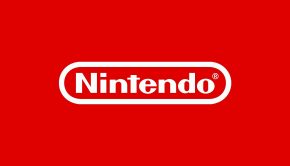
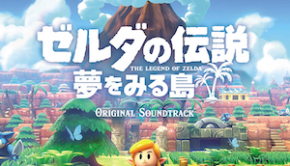
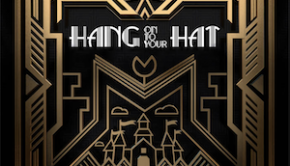
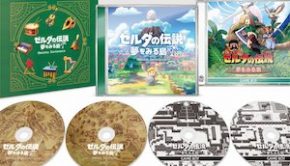










The orchestrated tracks of the game were on my first videogame playlist on my mp3-player back then. So this was where my videogame music passion actually started 🙂
Sadly I can’t really enjoy listening to the electronic songs of Twilight Princess because they sounds so artificial to me :/